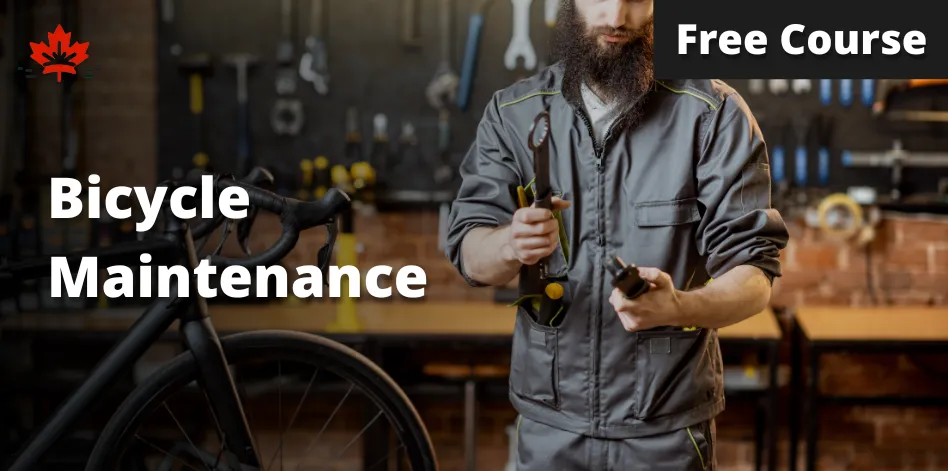Whether you’re a daily commuter, a weekend warrior, or simply enjoy the occasional ride through the park, maintaining your bike is essential for a safe and enjoyable experience. With that in mind, we are thrilled to introduce a free bicycle maintenance course designed to empower riders with the knowledge to keep their bikes in top-notch condition.
This comprehensive course is your chance to learn from experienced mechanics without spending a dime. You’ll dive into everything from the basics of tire inflation to the intricacies of gear adjustments. The hands-on tutorials and easy-to-follow modules ensure that by the end of this course, you will have gained the priceless skill of self-reliant bicycle maintenance. Stay tuned as we pedal through the details that could save you money and keep your two-wheeled companion rolling smoothly.
Unlock the Secrets of DIY Bike Repairs: Your Journey Through Free Bicycle Maintenance Training
Are you tired of costly bike repairs that could easily be done at home with the right know-how? It’s time to empower yourself with the skills necessary to keep your bicycle in top-notch condition. Dive into the world of DIY bike repairs by exploring free bicycle maintenance training.
Imagine the freedom of performing your own bike maintenance, from fixing a flat tire to adjusting gears and brakes with confidence. These courses typically cover a range of topics suitable for beginners and seasoned cyclists alike. Step-by-step tutorials guide you through each process, ensuring you learn the essentials of bike mechanics.
Start with the basics of bicycle anatomy, familiarizing yourself with the different parts of your bike. Then, delve into more complex tasks like troubleshooting common mechanical issues or learning how to properly clean and lubricate your bicycle’s components.
Most importantly, these free courses often come with supplementary materials such as instructional videos, diagrams, and forums where you can connect with fellow cycling enthusiasts. By completing a course in DIY bike repair, not only do you save money on repairs, but you also gain a valuable skill set that enhances your cycling experience.
So whether you’re commuting daily, hitting the trails at the weekend or just enjoy casual rides around town, knowing how to maintain your bicycle is an indispensable skill. With the help of free bicycle maintenance training, you’re on track to becoming self-sufficient in keeping your ride smooth and safe.
Understanding the Basics of Bicycle Maintenance
When embarking on a Free Bicycle Maintenance Course, it is crucial for participants to start with a strong understanding of the basics. This portion of the course typically covers the essential components of a bicycle, including the frame, wheels, gears, brakes, and drive chain. Participants will learn how to perform a routine check-up to ensure their bike is in good working condition.
One key aspect at this stage is learning how to identify signs of wear and tear which could lead to potential issues if left unattended. For instance, spotting frayed cables or worn brake pads early can prevent accidents and costly repairs down the line. Students are also taught about the different types of bicycles, such as road, mountain, and hybrid bikes, and the specific maintenance needs of each.
Refreshing or gaining knowledge on how to properly inflate tires, adjust seat height, and align handlebars for comfortable riding are also covered. These might seem like simple tasks, but they are the cornerstone of maintaining a bike that performs well and is safe to ride. Through this course, participants will be equipped with the knowledge to keep their bicycles in top condition, extending the lifespan of their bikes and improving their overall cycling experience.
Tackling Common Repairs and Troubleshooting
One of the most beneficial features of a Free Bicycle Maintenance Course is the hands-on experience gained from addressing common repairs and learning to troubleshoot problems. The course should guide students through fixing flat tires—a frequent issue for cyclists—and teach them how to correctly remove and replace a wheel. This skill alone can save cyclists time and money, enabling them to quickly get back on the road.
The course will likely cover how to adjust and tune derailleurs for smooth gear shifting, as well as how to fix broken chains—a typical issue that can render a bike inoperable if not addressed. Understanding the importance of proper brake adjustment and learning how to execute this can be life-saving. Moreover, participants can also expect to learn how to tackle less frequent but equally important tasks, such as replacing spokes or servicing a bottom bracket.
Troubleshooting skills taught in the course enable cyclists to diagnose and fix issues on their own. These troubleshooting methods include listening for unusual noises, feeling for vibrations, or noticing changes in the bike’s performance, all of which can help pinpoint specific problems before they escalate.
Advancing Your Skills with Specialized Workshops
While the general free course provides a comprehensive introduction to bicycle maintenance, many programs offer advanced specialized workshops for those who wish to deepen their knowledge. These workshops might focus on areas such as suspension tuning for mountain bikes, wheel building for custom bikes, or advanced drivetrain servicing for high-performance bicycles.
These specialized courses are perfect for individuals looking to save more by undertaking complex repairs themselves or for those considering a career in bicycle mechanics. Workshops like these are also a great opportunity for enthusiasts to connect with fellow cyclists and industry professionals, forming a community around shared interests.
Acquiring these highly specialized skills can elevate a cyclist’s hobby to a new level, offering not just savings on maintenance costs, but also the satisfaction of being able to customize and care for their bikes meticulously. With the thorough understanding gained from these workshops, participants are often inspired to continue learning and potentially share their knowledge with others in the cycling community.
